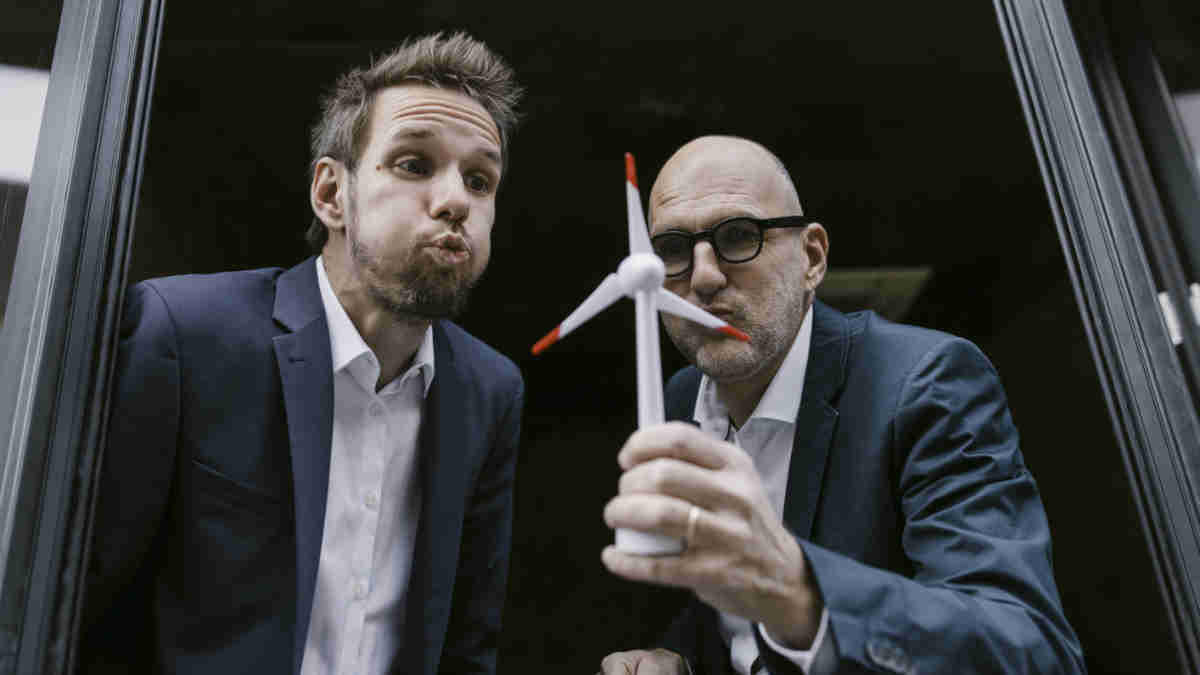The Ethical Investor: Responsible investing has come of age, and what trends to watch for in 2024

Responsible investing will continue its rise, says expert. Picture Getty
- Responsible investing has come of age, and will continue to rise, says expert
- What exactly is responsible investing? And trends to watch out for
- Are Aussies big in responsible investments? Read on…
Responsible investing is quickly becoming more mainstream, and is gradually converging towards a more standardised and regulated environment.
Elodie Laugel, Chief Responsible Investment Officer at Amundi, says the coming years will be critical for responsible investors.
“A slower transition would certainly bring huge environmental, financial, economic costs that need to be carefully identified,” Laugel said.
“On the opposite, we see great opportunities if the world enters into a steady and orderly transition scenario.
“Investors should stay the course! Consistency and clarity around the investment value proposition will be key components of their success.”
So what exactly is responsible investing?
The RIAA (Responsible Investment Association Australasia) defines ‘responsible investment’ as an approach to investing which “factors in people, society and the environment, along with financial performance, when making and managing investments.”
According to the RIAA, examples of responsible investors could include those selling stocks with a poor human rights record, or those that are investing in a social enterprise that’s focused on tackling a pressing social or environmental issue.
“Investors engage in responsible investing for a range of reasons including: to align investments with their own or their clients’ personal values and ethics; to reduce risk; and to achieve strong financial returns in the short and long term,” said the RIAA.
“All kinds of investors can be responsible investors, whether they are individuals choosing where to put their savings or superannuation; a trustee of a trust or foundation; or an institutional investor such as a super fund, fund manager, bank or asset manager.”
Responsible funds to rise further
According to data from Amundi, responsible investments had resumed their growth in 2023, after stalling for much of 2022.
Assets held in so-called ‘Responsible Funds’ have increased 4x since 2020, and now account for 17% of total assets worldwide, and more than half of the European ones.
In terms of performance, after a difficult 2022 in the context of energy crisis, 2023 showed a return to positive territory for the main ESG indices.
Europe, the US and the World ESG indices all experienced significant positive outperformance in 2023.
“Despite challenging market conditions, responsible investment flows keep increasing on the long run,” said Vincent Mortier, chief investment officer at Amundi.
“Favourable trends should continue to support its future development as 67% of global asset owners are convinced of the materiality of ESG factors.
“In addition, we expect thematic and impact strategies to dominate the market in 2024 and onwards.”
Two trends to watch for in 2024
Against that backdrop, Amundi believes 2024 will be a year of acceleration for responsible investment, driven by promising structural trends.
A couple of these trends that responsible investors should focus on include:
1. The US Inflation Reduction Act and the EU Green Deal Industrial Plan to provide tailwinds
Policy initiatives in the US, EU, and China are driving substantial investments in green tech.
The US Inflation Reduction Act marked a breakthrough, unlocking US$400bn for green tech incentives.
The EU’s response, the Green Deal Industrial Plan, will mobilise €300bn by 2030.
In China, the combination of the Made in China 2025 plan and the 14th Five-Year Plan has put green innovation at the centre of its industrial policy.
Almundi says there are five green tech areas to watch in 2024: sodium batteries, AI for smart for emissions management, green steel, carbon capture & storage, and alternative marine fuels.
2. Beyond headlines on ESG backlash
Responsible investing still faces localised backlash in some regions.
Yet, more than two-thirds of asset owners (67%) believe ESG has become more crucial to investment policy in the past 5 years (source: Morningstar).
“This backlash should be seen as a sign that the industry is maturing,” says Almundi.
“ Firstly, it shows that real change is at work. Secondly, it calls for a need for clarity in value propositions and corporate commitments. Investors’ expectations must be met on these two fronts.
“In 2024, we expect asset managers to continue enhancing transparency at product level, and to clarify how commitments at an asset management company level relate to product level objectives.
Are Aussies into responsible investing?
In Australia, responsible investing is also gaining traction fast.
According to data from the RIAA, more than two-thirds of Aussies have heard of the term “responsible investing”, up from just half in 2020.
“Australians are upping the pressure on the finance sector – including super funds, banks and investment managers – to do more on climate change and avoid contributing to issues such as animal cruelty and human rights abuses,” said the RIAA.
The most important theme for Australian responsible investors is the environment, where 70% see it as being the most pressing issue.
Other areas of concern for Aussies include animal cruelty (60%), tobacco (54%), human rights abuses (51%), weapons and firearms (54%) and gambling (50%) – according to the RIAA report.
For its part, the RIAA has provided a tool to help investors looking for responsible investments based on the issues that matter to them most.
You can see the tool here.
For those looking to make a go of responsible investing themselves, there are many many ETF options on the ASX to choose from – such as those offered by Betashares, Vanguard or Janus Henderson.
See more here: Why buying ESG ETFs makes you an investor in tech stocks, including red hot Nvidia
Related Topics
UNLOCK INSIGHTS
Discover the untold stories of emerging ASX stocks.
Daily news and expert analysis, it's free to subscribe.
By proceeding, you confirm you understand that we handle personal information in accordance with our Privacy Policy.








